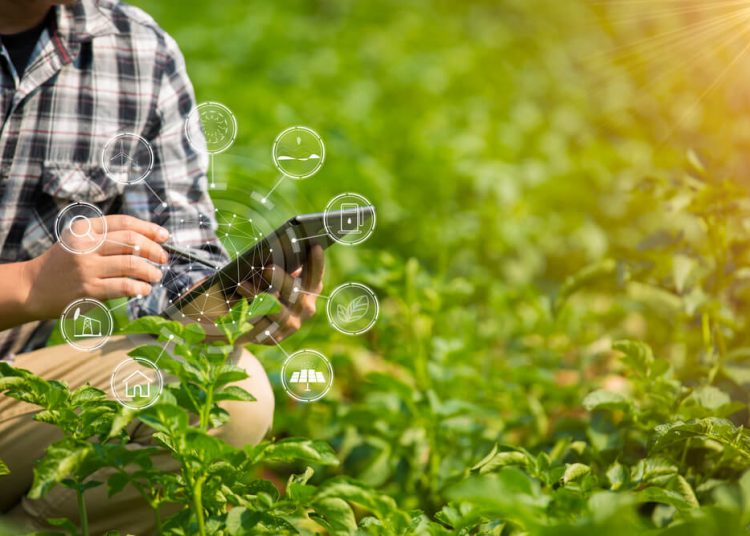“Agri-tech and precise agriculture techniques enabled by digital solutions are key for bolstering productivity and food and water security,” agriculture expert Sherif Fayyad said.
Egypt Vision 2030, created in line with the UN Sustainable Development Goals, aims to transform the country into a leader in the tech sphere, with a focus on digital transformation. The Sustainable Agriculture Development Strategy 2030 focuses this shift on the agriculture sector.
“With climate change exacerbating water scarcity and food insecurity, it will be important for Egypt’s agriculture sector to respond rapidly to future challenges. It can do so not only by adopting farming machinery and better irrigation methods, but also by introducing new technologies such as machine learning and artificial intelligence (AI) into the field. These measures can help make Egypt more competitive at the international level and enhance domestic food security,” Fayyad told The Egyptian Gazette.
In recent years, the Ministry of Agriculture and Land Reclamation (MALR) has worked in partnership with the Ministry of Communications and Information Technology (MCIT) to launch several initiatives to speed up digitisation in agriculture.
According to Fayyad, digital agriculture can help farmers take action without waste of resources, contributing to improving agricultural efficiency, productivity, and sustainability.
In 2016, for example, MALR introduced a smart card scheme for farmers, aimed at automating services. Farmers can use the card to see the fertiliser, pesticide and seed quotas for their land – curtailing the overuse of fertiliser and enhancing oversight of the distribution process.
In 2021, the MALR and the MCIT introduced the Hudhud mobile application, which uses AI to help farmers identify and treat pests.
In 2019, the Food and Agriculture Organisation (FAO) and the government launched a comprehensive strategy to enhance agricultural productivity through digital technology.
In 2020, the Ministry of Irrigation and Water Resources in co-operation with Cairo’s MSA University developed and launched a mobile app that receives data from a sensor buried in the soil to detect moisture levels. This technology allows farmers to tell whether or not their crops need water, preventing excessive watering of crops.
The MALR also launched in 2020 the Agricultural Innovation Project (AIP). The initiative aims to promote innovations in technologies to tackle several issues in agriculture. These issues include inefficient farming techniques that lower farm output and food production for small farmers in Upper Egypt.
Agriculture expert Khalil el-Malki stressed the positive effect of digital agriculture to increase the quality and quantity of farmers’ production.
“Implementation of digital technology helps farmers access information to better manage crops and livestock and thus help them make better agricultural decisions,” el-Malki said.
“Exact statistics tell farmers how much fertilisers and source materials are needed. This will help farmers to plan properly. If they have exact data about temperature, the actual humidity inside the soil which is actually happening right now, then they can control the amount of water used for irrigation and control the amount of pesticides and fertilisers that is being sprayed out,” he added.
Moreover, el-Malki noted, digital technology helps to enhance food security by reducing production costs and waste.
“One of the major barriers to expand the introduction technologies in the agricultural sector is a lack of awareness of the benefits of digital tools. At present, many farmers do not understand how the introduction of new technologies will benefit them, and as such, further training is needed for encouraging farmers to utilise new tools,” he said.






Discussion about this post